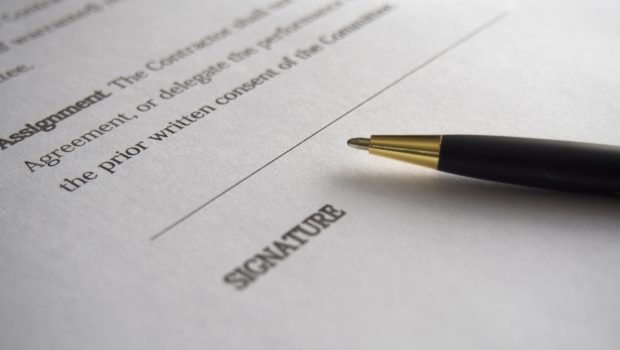How a Wrongful Death Lawsuit Works
A wrongful death lawsuit is a unique form of personal injury tort law. Tort law addresses acts where someone has done something beyond a contractual obligation. Tort has its origins in English law for when someone might trespass on another’s property and cause damage.
The word “tort” essentially derives from the Latin words tortum and tortus, which respectively mean “wrong” and “to twist”. These expressions embody the thought of creating a fair remedy and restoration to the victim at the expense of the defendant. Tort law claims such as “wrongful death” can be brought together in a single action with breach of contract claims. This is especially important when an insurance company is wholly or partly liable.
A wrongful death suit theory requires the family members or life partners who represent the estate of the deceased to demonstrate that an intentional, knowing, reckless, or negligent act was the proximate cause of death. The gradients of intent would also be grounds for seeking punitive damages on account of malice if the acts were anything more than pure negligence.
The wrongful death remedy lies to prevent responsible parties from escaping legal ramifications simply because the victim is no longer alive to sue for damages. The remedy is also designed to compensate family members for the loss of a loved one. This is especially the case when the family relied on the deceased victim for financial support, and when the defendants acted in a manner that could reoccur and harm others in the future.
What Are the Specific Elements that Must Be Plead?
Wrongful death claims can be pursued when the defendants owed a duty to the deceased victim and breached a reasonable standard of care. In these situations, a jury or judge would have to find that the defendants acted negligently, recklessly, knowingly, or intentionally, and also that they were a proximate cause of the harm.
There can be multiple proximate causes of the harm such as saint of circumstance, the victim’s own negligence, or other doctors who, likewise, acted negligently before a particular treatment. It is only when the deceased victim’s own negligence is determined to be a greater percentage than the defendants’ that the defendants would escape liability under the comparative negligence defense.
What Are Some Examples of Wrongful Death Claims?
Crimes
As a citizen of the United States, or someone subject to the laws of the United States when they kill a U.S. Citizen, or nationals within the jurisdiction of the United States, you owe a duty of care to obey criminal laws. When you act in a manner that is negligent, reckless, knowing, or intentional to harm someone, then you have breached that duty. The law itself presents the standard of care. And even if you are acquitted of the crime on a murder trial, you can still be prosecuted under civil law using a lower burden of proof.
This does not violate double jeopardy protections because the burden of proof at a criminal trial is “beyond every reasonable doubt” while the standard for a civil suit is “by a preponderance of the evidence.” A preponderance of the evidence standard only requires the plaintiff to demonstrate that it is “more likely than not” that the defendants are responsible for damages. This standard can be as easy as picking between two pieces of fruit that look nearly identical but finding in favor of one because the other had a spot, or discoloration, etc.
Car Accident
In a car accident, there may or may not be a criminal trial for a wrongful death incurred. In some cases, the wrongful death may be due to a known manufacturing defect and not a situation where another driver hits the victim’s car. A car accident can also occur when a car repair shop is negligent and doesn’t repair brakes or other parts properly but misleads the owners of the vehicle. Wrongful death crimes may be prosecuted under a manslaughter theory when there are indications of speeding excessively, intoxication, or sleeping at the wheel.
Medical Malpractice
Medical malpractice claims can arise when a doctor or other medical staff fail to provide adequate care by delaying treatment, denying treatment, or improperly diagnosing the victim. Many cases of misdiagnosis occur because doctors failed to read lab results adequately and missed signs that the disorder was something else. In these cases, expert testimony is required by a doctor of similar standing in the same profession who can testify regarding the standard of care expected and whether it was breached.
Malpractice is by its very nature negligence rather than intentional or reckless acts that would border on criminal. For example, a doctor prescribes a patient a new drug that interacts with an MOIA-inhibitor class of drugs because he is negligent to make a thorough review of the patient’s chart. The patient dies as a result of following the doctor’s medical advice from a bad drug combination. The doctor did not act with malice but still caused a preventable death.
Who is Eligible to Pursue a Wrongful Death Claim?
A wrongful death claim can only be sought as a remedy by friends and family of the deceased who represent their estate. They have a stronger case for the right to sue on behalf of the estate if the deceased had drawn up a will that places them as executors and beneficiaries of their estate. In the absence of a will, all states recognize the right of a spouse to sue. Minors may also file a lawsuit when a parent is killed, and vice-versa when minors are killed, and their parents become the beneficiaries.
The state laws differ, however, when it comes to adult children who want to represent the estate of a deceased parent. They also differ when parents want to represent the estate of their deceased adult children. The laws get even murkier when distant relatives, life partners, and friends of the family attempt to act as beneficiaries of the deceased victim’s estate.
There are times when these claims may be brought under Federal Law in a civil rights action as pendent state law claims. In these instances, these diverse legal rights would be prescribed by whatever state law is applicable to the state where the wrongful events occurred. In any case, you will need a wrongful death lawyer to help you present and plead your case because these cases require complex calculations to quantify the extent of a legal injury and other experts to help a jury determine the cause of the death.
Claims can be won and lost on what may seem to be very trivial nuances. Only a wrongful death attorney can ensure that you receive full compensation and recognition as a beneficiary of the victim’s estate.
Types of Possible Damages
• Loss of consortium
• Pain and suffering of the victim (prior to death)
• Loss of inheritance
• Medical expenses incurred
• Funeral bills
• Loss of anticipated income and services
• Loss of love, nurturing, and care anticipated
• Property damage
Conclusion
You should never attempt to navigate the complex legal landscape of a wrongful death claim yourself. You should always hire the wrongful death attorney that you trust. You can determine the best choice for your wrongful death lawyer needs based on their track record and a demonstration that they are willing to put the work into the case.
















